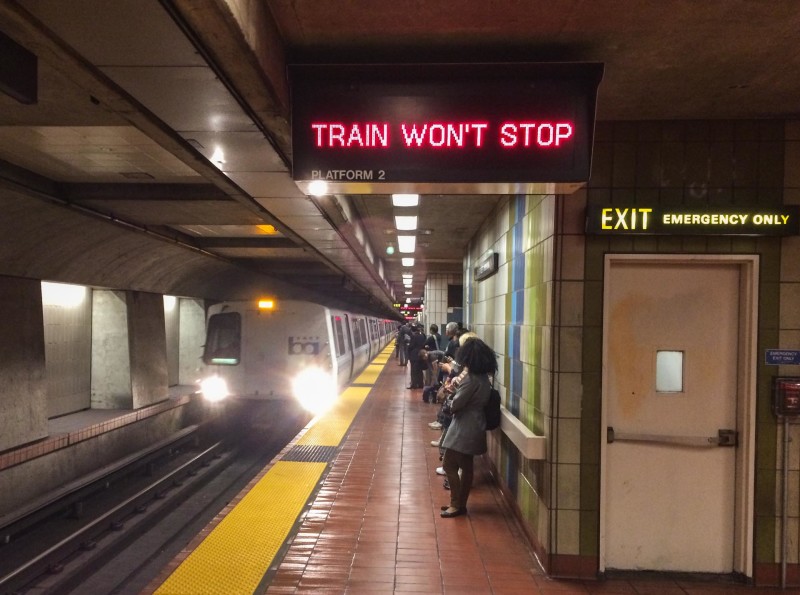What kind of financial hit does that add up to for BART?
The district reported bringing in $480 million in fare revenue for fiscal 2015-16 and projected an increase of about 6 percent, to $510 million, for this fiscal year. BART financial staff now projects the agency will collect about $492 million in fares -- $18 million less than forecast.
There's one silver lining for BART in the ridership and revenue numbers, though: The number of passengers riding between the East Bay and San Francisco on weekdays is actually up 1 percent over last year. Those are longer trips with higher fares and have softened the overall loss of revenue.
Still, the district is facing an estimated $15 million to $25 million budget deficit for the year ending June 30; another shortfall of as much as $35 million is forecast for the 2017-2018 fiscal year.
So, we've done the numbers. What might they mean for BART riders?
BART staff presented the board with a series of options. A majority of board members have expressed support for some of the ideas, like a crackdown on fare evasion and expanding advertising opportunities at the system's stations. Other proposals include automating trains so they no longer require an operator, raising parking fees and imposing a new fee on Silicon Valley employee shuttles that pick up and drop off passengers at BART stations.
But Carter Mau, the head of BART's office of planning and budget, said the board will have to go beyond these measures.
"The sum of all these categories together will not be able to address the deficit we are facing," Mau said.
He told the board it would need to consider steps like raising the district's base fare -- the minimum amount it charges for a ride ($1.95, or $3.20 for the shortest transbay trip) -- and reducing the discount for youth and senior passengers. He said the district could save money through better timing of its allocations for long-term capital projects. And he noted that the agency has already imposed a freeze on hiring 160 approved positions.
Mau added that some major service cuts might be necessary for BART to save its budget shortfall. That could involve eliminating the first hour of weekday service, which now begins at 4 a.m., and cutting direct early evening service from San Francisco to Richmond and Fremont.
Rebecca Saltzman, the BART board president, said she's concerned that a cycle of reduced service, reduced ridership and reduced revenue would threaten the district's ability to continue reinvesting some of its operating income for capital projects.
Reducing service "should be the absolute last thing that we consider," Saltzman said. "I think it would be a really big mistake."
Board member John McPartland, who has an extensive history in emergency services, echoed that sentiment. "In medical terms, we call that circling the drain, and it leads nowhere good," McPartland said.
Debora Allen, a board member elected in November as a budget hawk, said the agency needs to address its long-term retiree pension and medical costs. She also lectured fellow board members for directing staff to undertake projects like developing a policy that would make BART a sanctuary from immigration enforcement.
"I think this board needs to remember when we ask staff to do things -- when we ask them to research things, when we ask them to go spend time on housing bills, we ask them to go develop sanctuary-in-transit policies -- we have to remember that that's a cost to this system as well," Allen said. "We have costs of the system that are in operations, but all of these other things where we sort of move off into things that don't make our trains run on time, these are costs, too, that we need to be looking at."
Lateefah Simon, another newly elected board member and one of two members who put forward the sanctuary proposal, took issue with Allen's remarks.
Responding to issues like sanctuary "is absolutely central to our being voices in the communities for folks who have no bullhorns," Simon said. "... As elected, the diversity and demography of our districts demand that we come to staff with a diversity of issues."
The board will revisit its revenue shortfall and alternatives for dealing with it at a Finance Committee meeting on March 14.

